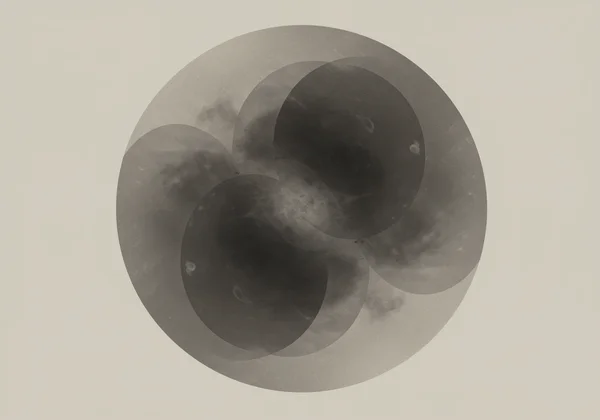Bolehkah Kemurungan Disalah Anggap Sebagai Narsisisme? Perbezaan Utama & Ujian Narsisisme
July 6, 2025 | By Rowan Thorne
Adakah anda atau seseorang yang anda kenali sedang bergelut dengan tingkah laku yang sukar dikategorikan? Adalah biasa untuk ** narsisisme vs kemurungan ** kelihatan serupa di permukaan, menyebabkan kekeliruan dan potensi ** kesilapan dalam mendiagnosis narsisisme **. Ramai yang tertanya-tanya, ** Adakah kemurungan boleh disalah anggap sebagai narsisisme? ** Artikel ini akan menguraikan hubungan kompleks antara kedua-dua keadaan psikologi yang berbeza ini. Kami akan membantu anda memahami ciri-ciri unik mereka, pertindihan yang dikongsi, dan cara membezakannya untuk pandangan yang lebih jelas tentang kesejahteraan mental. Memahami nuansa ini adalah penting untuk refleksi diri dan menyokong orang lain. Untuk mula meneroka ciri-ciri anda sendiri, anda mungkin mempertimbangkan ** penilaian narsisistik ** awal untuk mendapatkan kejelasan.
Memahami Ciri-ciri Narsistik
Narsisisme sering disalah faham, lalu dikurangkan kepada sia-sia semata-mata atau kekaguman diri. Walau bagaimanapun, ia adalah konsep yang jauh lebih kompleks yang merangkumi spektrum ciri, daripada harga diri yang sihat kepada gangguan personaliti yang mendalam.
Apakah Narsisisme? (Melangkaui Stereotaip)
Pada terasnya, ** definisi narsisisme ** merujuk kepada keterlibatan yang berlebihan dengan diri sendiri dan imej fizikal atau mental seseorang. Ia melibatkan perasaan kebesaran diri, keperluan mendalam untuk dikagumi, dan kekurangan empati terhadap orang lain. Orang yang mempunyai ciri-ciri narsistik yang kuat sering percaya bahawa mereka lebih unggul, istimewa, atau unik, dan menjangkakan untuk diiktiraf sedemikian. Ini bukan sekadar keyakinan; ia adalah tentang ego yang rapuh yang disokong oleh pengesahan luaran.

Keagungan vs. Kerentanan: Dua Sisi Narsisisme
Walaupun narsisis stereotaip adalah angkuh dan taasub diri (sering disebut ** narsisisme nyata **), terdapat satu lagi bentuk yang kurang jelas: ** narsisisme yang rapuh **. Jenis ini dicirikan oleh keagungan dalaman yang sangat terdedah kepada kritikan luaran. Narsisis yang rapuh mungkin kelihatan pemalu, introvert, atau bahkan tertekan, namun menyimpan perasaan hak dan kebencian yang mendalam terhadap orang lain. Rasa keunggulan mereka tersembunyi di sebalik fasad ketidakselesaan, menjadikan mereka terdedah kepada perasaan malu dan penghinaan. Walau bagaimanapun, kedua-dua jenis berkongsi tumpuan diri yang asas dan perjuangan dengan empati sebenar.
Mengenalpasti Gejala Kemurungan
Kemurungan, sebaliknya, adalah gangguan mood yang memberi kesan ketara kepada cara seseorang berasa, berfikir, dan berkelakuan. Ia boleh membawa kepada pelbagai masalah emosi dan fizikal, seringkali bermanifestasi sebagai kesedihan yang berterusan atau kehilangan minat dalam aktiviti yang pernah dinikmati.
Tanda-tanda Kemurungan Biasa
** Gejala kemurungan ** seringkali menunjukkan pelbagai tanda yang boleh dikenali. Ini termasuk mood yang rendah secara berterusan, kehilangan keseronokan atau minat dalam hobi, perubahan ketara dalam selera makan atau corak tidur, keletihan, perasaan tidak bernilai atau rasa bersalah, kesukaran menumpukan perhatian, dan juga fikiran untuk mencederakan diri sendiri. Gejala-gejala ini boleh melemahkan, mempengaruhi kehidupan harian, perhubungan, dan prestasi kerja.
Pengalaman Dalaman Kemurungan
Di sebalik gejala luaran, ** pengalaman dalaman ** kemurungan adalah kesakitan emosi yang mendalam dan seringkali kritikan diri. Individu mungkin merasakan perasaan hampa, putus asa, atau keputusasaan yang amat sangat. Perjuangan dalaman ini boleh menyukarkan untuk berinteraksi dengan dunia, menyebabkan pengunduran diri dan pengasingan. Tidak seperti tumpuan luaran narsisisme, kemurungan sebahagian besarnya adalah perjuangan dalaman terhadap ketidakcukupan diri sendiri dan beban emosi negatif.

Pertindihan Kompleks: Narsisisme Rapuh & Kemurungan
Di sinilah segalanya menjadi kabur. Hubungan rumit antara ** narsisisme rapuh dan kemurungan ** sering membawa kepada kekeliruan, kerana beberapa tingkah laku boleh meniru satu sama lain.
Mengapa Kekeliruan? Tingkah Laku & Keadaan Dalaman yang Dikongsi
Kedua-dua individu narsistik (terutamanya mereka yang mempunyai ** vulnerable narcissism **) dan mereka yang mengalami kemurungan boleh menunjukkan pengunduran diri, mudah marah, kesedihan, dan harga diri yang rendah. Seorang narsisis mungkin menjadi sangat tertekan jika imej diri mereka yang dibesar-besarkan terancam atau jika mereka gagal menerima kekaguman berterusan yang mereka inginkan. Ini boleh kelihatan seperti kemurungan biasa, tetapi motivasi yang mendasarinya sering berbeza. Begitu juga, kemurungan yang mendalam boleh membawa kepada penyerapan diri yang boleh disalah anggap sebagai kecenderungan narsistik. Kedua-duanya juga boleh bergelut dengan ** regulasi emosi **, yang membawa kepada ledakan atau tingkah laku pasif-agresif.

Pseudo-Narsisisme: Apabila Kemurungan Meniru Narsisisme
Konsep ** pseudo-narsisisme ** menyoroti situasi di mana kemurungan teruk, terutamanya pada remaja atau dewasa muda, boleh bermanifestasi dengan tingkah laku yang secara luaran menyerupai ciri-ciri narsistik. Individu yang sangat tertekan mungkin kelihatan seperti diri mereka sendiri, terasing, atau terlalu kritis kerana kesakitan dalaman mereka dan ketidakupayaan untuk berhubung. Walau bagaimanapun, tingkah laku ini berasal daripada penderitaan yang kuat dan kekurangan tenaga, bukan daripada pandangan diri yang hebat atau hak. Membezakan punca utama adalah penting untuk campur tangan yang berkesan.
Membezakan untuk Kejelasan: Perbezaan Utama
Walaupun terdapat pertindihan, perbezaan asas wujud antara ** NPD dan kemurungan ** yang penting untuk pemahaman yang tepat.
Motivasi & Empati: Petunjuk Diagnostik Teras
Perbezaan utama terletak pada ** motivasi ** yang mendasari dan kapasiti untuk ** kurangnya empati **.
- ** Narsisisme **: Tingkah laku didorong oleh keperluan yang terdesak untuk mengekalkan imej diri yang diperbesarkan, mendapatkan kekaguman, dan mengelak apa-apa persepsi celaan terhadap ego mereka. Kekurangan empati sebenar bermakna mereka bergelut untuk memahami atau berkongsi perasaan orang lain, seringkali melihat orang sebagai sambungan untuk memenuhi keperluan mereka. "Kesedihan" mereka selalunya rasa kasihan diri terhadap ego yang rosak, bukan penyesalan kerana menyakiti orang lain.
- ** Kemurungan **: Tingkah laku berasal daripada kesakitan dalaman yang mendalam dan seringkali perasaan tidak bernilai, putus asa, dan rasa bersalah yang luar biasa. Individu yang mengalami kemurungan biasanya mengekalkan kapasiti empati mereka, walaupun mereka terlalu terbeban untuk menyatakannya. Kesedihan mereka adalah tulen, sering disertai dengan menyalahkan diri sendiri dan keinginan untuk kelegaan.
Kesan Terhadap Hubungan: Petunjuk yang Mendedahkan
** Kesan terhadap hubungan ** juga menawarkan petunjuk yang ketara.
- ** Narsisisme **: Hubungan adalah urusan. Narsisis sering mengeksploitasi orang lain, memanipulasi, dan bergelut dengan keintiman sebenar. Corak hubungan mereka sering ditandai dengan kitaran idealisasi, devaluasi, dan pembuangan, meninggalkan pasangan atau rakan berasa terkuras dan digunakan. Mereka mencari pemujaan, bukan sambungan.
- ** Kemurungan **: Walaupun kemurungan boleh memberi tekanan kepada hubungan kerana pengunduran diri, mudah marah, dan kekurangan tenaga, individu tersebut biasanya tidak sengaja memanipulasi atau mengeksploitasi orang lain. Orang yang dikasihi sering menyatakan keprihatinan dan keinginan untuk membantu. Orang yang mengalami kemurungan masih menginginkan sambungan, walaupun mereka bergelut untuk mengekalkannya.
Mencari Bimbingan Profesional & Penerokaan Diri
Memahami keadaan kompleks ini adalah langkah pertama untuk penyembuhan dan interaksi yang lebih sihat.
Bila Perlu Mencari Bantuan Profesional
Jika anda atau seseorang yang anda kenali secara konsisten menunjukkan ciri-ciri narsistik yang teruk atau mengalami gejala kemurungan yang mendalam, mencari bantuan profesional adalah amat penting. Seorang profesional kesihatan mental, seperti ahli psikologi atau psikiatri, boleh memberikan ** diagnosis klinikal ** yang betul dan mengesyorkan ** rawatan terapeutik ** yang sesuai. Mereka boleh membezakan perbezaan halus dan menentukan sama ada ia adalah ciri personaliti, gangguan mood, atau gabungan kedua-duanya. Campur tangan awal boleh meningkatkan hasil dengan ketara.
Laluan Anda ke Kesedaran Diri & Pemahaman
Bagi mereka yang memulakan ** perjalanan kesedaran diri ** atau cuba memahami dinamik perhubungan yang kompleks, alat penilaian diri boleh menjadi titik permulaan yang berharga. Walaupun tidak diagnostik, ** ujian narsisisme percuma ** atau ** penilaian narsisistik ** boleh menawarkan pandangan awal tentang potensi ciri. Penilaian kami yang diilhamkan oleh NPI menyediakan cara yang cepat dan sulit untuk meneroka kecenderungan anda sendiri dan memulakan laluan anda ke ** pertumbuhan peribadi **. Ambil penilaian sekarang untuk mendapatkan pemahaman awal. Ingat, ini adalah alat untuk refleksi diri, bukan pengganti nasihat klinikal profesional.

Laluan Ke Hadapan
Menavigasi nuansa antara ciri narsistik dan gejala kemurungan memerlukan pemerhatian yang teliti dan pemahaman tentang motivasi yang mendasarinya. Walaupun kompleks, membezakan perbezaan ini adalah penting untuk refleksi diri yang sesuai, mencari sokongan yang berkesan, dan memupuk dinamik peribadi yang lebih sihat. Ingat, alat penilaian diri seperti ujian yang diilhamkan oleh NPI di platform kami boleh menawarkan titik permulaan yang berharga untuk kesedaran diri, tetapi ia bukan pengganti untuk diagnosis profesional. Jika anda bersedia untuk meneroka ciri anda hari ini, penilaian kami sedia membimbing anda.
Soalan Lazim Mengenai Narsisisme & Kemurungan
Bagaimana saya tahu jika saya seorang narsisis?
Mengenali ciri-ciri narsistik dalam diri anda boleh menjadi mencabar, kerana persepsi diri sering kali herot. Jika anda kerap mengalami rasa keagungan diri yang besar, keperluan berterusan untuk dikagumi, kekurangan empati, atau kecenderungan untuk mengeksploitasi orang lain, ini boleh menjadi tanda-tanda. Renungkan bagaimana anda bertindak balas terhadap kritikan, mengendalikan hubungan, dan sama ada anda benar-benar merasakan keunggulan. Untuk pandangan awal yang sulit, anda boleh mengambil penilaian pantas di laman web kami, walaupun ini hanya untuk refleksi diri, bukan diagnosis.
Apakah perbezaan antara narsisisme dan NPD?
** Narsisisme ** merujuk kepada spektrum ciri personaliti, beberapa daripadanya (seperti harga diri yang sihat) adalah normal. Walau bagaimanapun, ** Gangguan Personaliti Narsistik (NPD) ** adalah diagnosis klinikal yang dicirikan oleh corak kebesaran diri yang menyeluruh, keperluan berterusan untuk dikagumi, dan kekurangan empati yang mendalam, menyebabkan gangguan ketara dalam fungsi harian dan perhubungan. Tidak semua orang dengan ciri-ciri narsistik mempunyai NPD; NPD adalah corak yang teruk, tegar, dan berterusan yang menyebabkan kesusahan atau gangguan. Platform kami membantu anda memahami ciri, bukan mendiagnosis NPD.
Bolehkah seorang narsisis berubah?
Kapasiti seorang narsisis untuk berubah adalah topik yang kompleks. Individu dengan ciri-ciri narsistik atau NPD sering kekurangan pandangan tentang tingkah laku mereka dan mungkin menolak terapi, melihat masalah sebagai luaran dan bukannya dalaman. Perubahan adalah mungkin, tetapi ia biasanya memerlukan kesedaran diri yang mendalam, keinginan sebenar untuk berubah, dan campur tangan terapeutik yang konsisten dan jangka panjang, selalunya melalui kaedah seperti terapi kognitif-tingkah laku atau terapi skema. Ia adalah perjalanan yang mencabar yang sebahagian besarnya bergantung pada kesediaan mereka untuk mengakui masalah mereka dan terlibat dalam kerja diri yang mendalam.